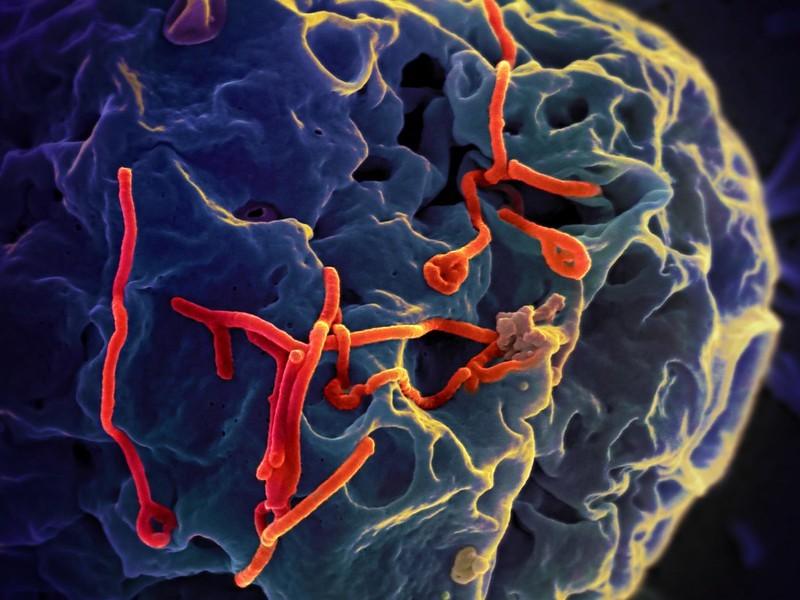Health officials in the Democratic Republic of the Congo (DRC) on Apr 23 declared an Ebola outbreak after the virus was confirmed in a man who died from his infection at an Ebola treatment center in Equateur province, marking the region's third outbreak since 2018.
Yesterday, scientists who examined the genetic sequence of the sample said evidence suggests a new spillover from the host reservoir and doesn't show a direct link to Equateur province's earlier outbreaks in 2018 and 2020.
Speedy genetic analysis narrows source
The World Health Organization (WHO) African regional office said in an Apr 23 statement that the 31-year-old man's symptoms began on Apr 5, and he received care at home for a week before seeking treatment at a local health facility.
On Apr 21, he was admitted to an Ebola treatment center in Mbandaka, but died the same day. Mbdanaka is on the Congo River's east bank and has frequent travel connections to Kinshasa and Boende, the capital of Tshuapa Province.
Given his symptoms, health workers submitted samples for testing.
Virus sequencing results posted by scientists on Virological.org, an online discussion forum for analyzing virus genomes, added more details, including that the man is a student in Tshuapa Province who returned to Mbandaka on Feb 25. He was vaccinated against Ebola in 2020 and isn't known to be an Ebola survivor.
Scientists also said he was hospitalized Mbandaka for 3 days before he was transferred to the Ebola treatment center at the city's Wangata General Reference Hospital.
The virus was sequenced at the Institut National de Recherche Biomédicale (INRB) in Kinshasa. Scientists from the lab and their international collaborators compared the virus with those sequenced in the region's earlier outbreak, finding that the new genome is closely related to the virus in Equateur Province's 2020 outbreak, but is outside the clade, representing a new spillover event.
Meanwhile, the WHO said the man received a safe and dignified burial, and efforts to identify and monitor contacts are under way.
Virus had a 2-week head start
Matshidisho Moeti, MBBS, the WHO regional office's director, said in the statement that time is not on responders' side. "The disease has had a two-week head start, and we are now playing catch up," she said. Undetected cases in the community and in general health wards pose a high risk for further spread.
"The positive news is that health authorities in the Democratic Republic of the Congo have more experience than anyone else in the world at controlling Ebola outbreaks quickly," Moeti added.
Officials are planning a vaccination drive using the "ring" strategy, in which contacts and contacts of contacts are immunized. Stockpiles of VSV-EBOV (Ervebo by Merck) are already in the DRC and will be sent to Mbandaka.
Many people in Mbandaka are already vaccinated, which Moeti said should help reduce the impact of the disease. She also said those who were immunized during the 2020 outbreak will be revaccinated.
The WHO said the latest outbreak is the DRC's 14th since 1976. Since 2018, the country has reported six outbreaks, the more frequent in its Ebola history. Two earlier outbreaks in Equateur Province, one in 2018 and one in 2020, resulted in 130 and 54 cases, respectively.
Last year, the DRC reported two small Ebola outbreaks, both in North Kivu province in the country's northeast and both likely linked to persistent infection in a survivor, such as a relapse or sexual transmission.
North Kivu was home to the country's largest-ever outbreak, in 2018 to 2020, which involved 3,481 cases and 2,299 deaths, according to WHO data.



















